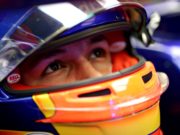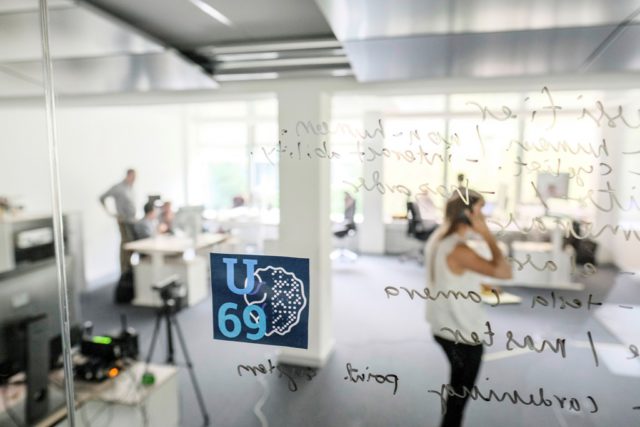Can computers or robots think? Could they have a consciousness? When AI specialists from the Volkswagen Group IT Data Lab talk about their work, they often hear questions like this. Here, at the Data Lab, an international team is working on the development of self-learning programs. In future, their development work could provide better support for their colleagues at the office and factory in many corporate processes. However, one thing is important for the Volkswagen specialists: if you are looking for machines that can think, you will find them in Hollywood rather than in the Data Lab.
“Machines that can think are only for the movies. They have nothing to do with our work,” says Prof. Dr. Patrick van der Smagt, Head of AI Research at the Data Lab. “We develop algorithms that independently learn how to detect and predict specific patterns and laws for optimum decisions.”
The key is machine learning or, to put it in simple terms, the ability of a program to link data, analyze interconnections and make predictions. However, van der Smagt and his team are going considerably further. The base for their work is deep neural networks.
For neural networks of this type, the Data Lab specialists combine information science with mathematics, or more precisely with probability theory. Their algorithms learn by always independently taking the optimum decision from the mathematical point of view in real-time, i.e. the decision that corresponds to the greatest probability.
Can computers or robots think? Could they have a consciousness?
“However, pattern detection is not a reflected thought process,” says van der Smagt. Before joining Volkswagen, he spent many years on research work at Munich University of Technology. “It is probably a matter of human nature that we subconsciously attribute human behaviour or even consciousness to systems of this type. But we are only interpreting this into the systems concerned. An algorithm learns by evaluating data in line with the laws of mathematical probability. No more and no less.”
So the machine that can think can only be found in fiction. But why are the experts at the Volkswagen Data Lab working on machine learning and algorithms that can teach themselves?
“Throughout the industry, there is considerable interest in machine learning because of the wide variety of potential applications for self-learning systems,” says Barbara Sichler. She heads business operations at the Data Lab and coordinates know-how transfer to the brands and units of the Group. “At the Data Lab, we, therefore, pool the expert knowledge available within the Volkswagen Group and obtain additional support from other top experts,” she says.
Sichler defines one of the Data Lab’s missions as exploring possibilities for the application of independently learning algorithms – and then developing them. There is a wide range of possible applications.
When specialists from the Volkswagen Group IT Data Lab talk about their work, they often hear questions like this
Learning systems can, for example, help skilled workers control complex logistics and production processes even more effectively. They can analyze complex economic developments and provide market planning experts with a comprehensive basis for making decisions. Robots and machines in the factory hall can learn to predict their own maintenance cycles and to notify the maintenance team when required. Learning systems offer new possibilities of protecting companies’ data communications against criminal hackers. The specialists at the Data Lab are also working on technical platforms for new digital customer offerings, for example in traffic guidance.
For Sichler, it is essential to ensure that the Data Lab does not shut itself off from the outside world. “Work on the digital future cannot be successful if it is carried out behind closed doors. We are committed to cooperation with partners from the academic world and industry,” she says. The Data Lab has close links to universities, research establishments and the scientific community throughout the world. Many of the experts working here are also teach in a university.
The latest development is the “Collaboration Space” at the Data Lab. Sichler and her team created it. This is a combination of a workshop and a laboratory for international start-ups with a full orientation towards machine learning. Here, start-ups teach robots to identify new movement patterns or carry out research into innovative data security approaches. Start-ups from Australia, the UK and Austria are already on board.
Still looking for a gift? Fill a jar with cookies and decorate it with a beautiful label. Free printable download: https://t.co/bDobu68MHM pic.twitter.com/hNlwUvm0jU
— Volkswagen (@Volkswagen) December 19, 2017

































